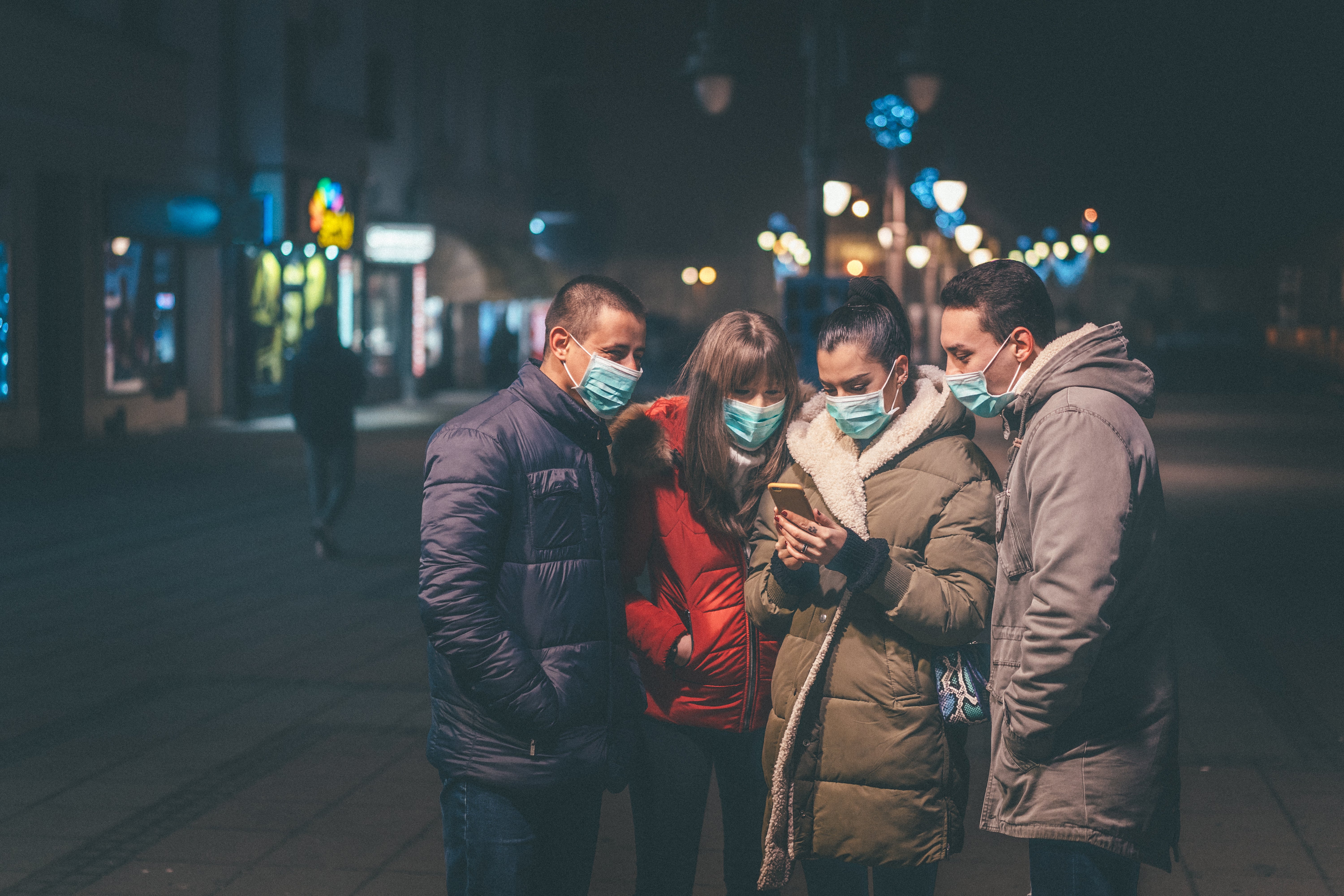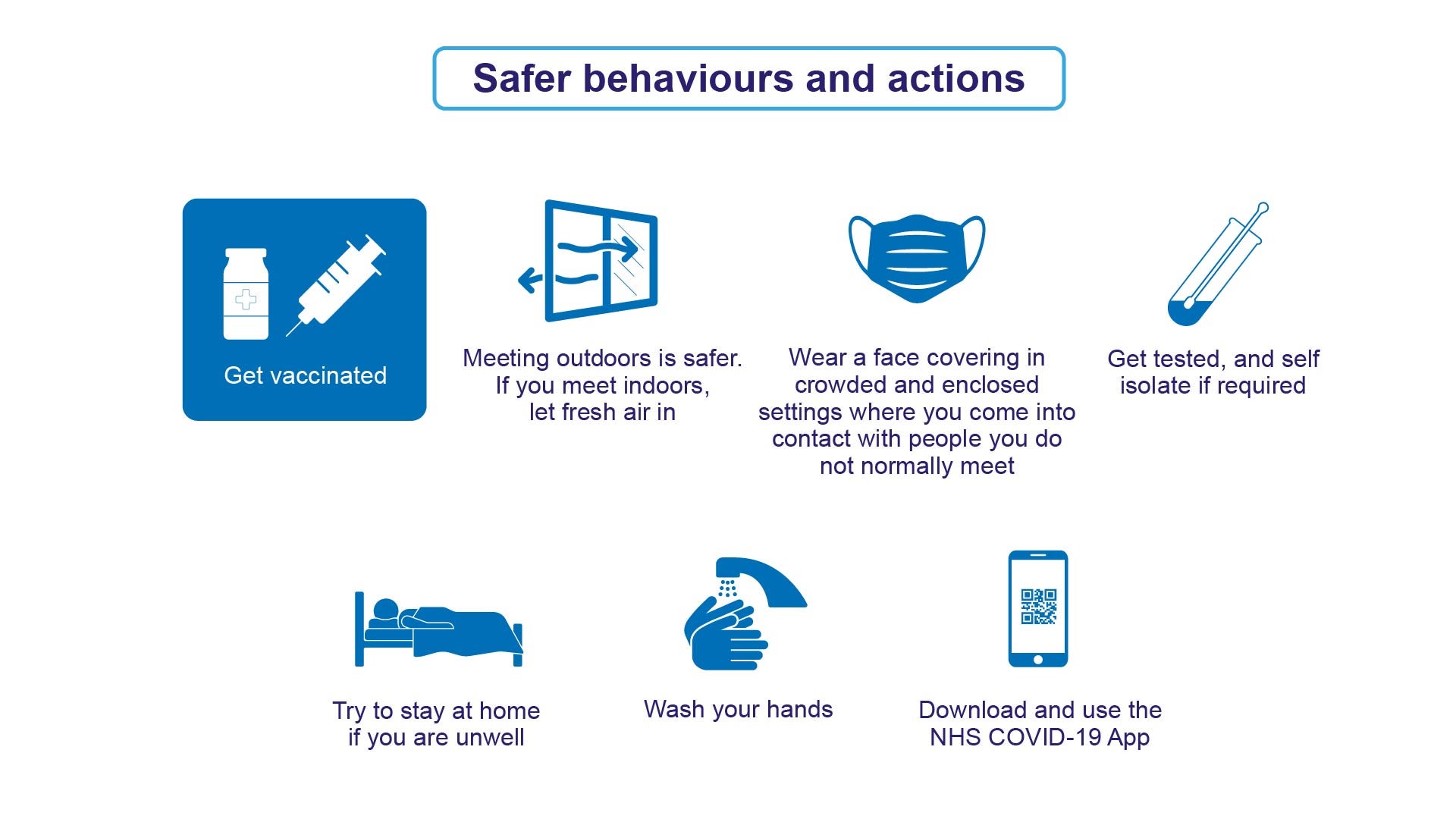The simple measures you can take to lower your risk of catching or spreading Covid this winter

The crisp, colder days and longer nights signal the onset of winter, and with it the desire to stay cosy indoors.
But as we approach the festive season, and all the celebrations that brings, it is important to remain as vigilant as possible and do what we can to control the spread of Covid-19.
This year is likely to feel very different to last – the arrival of the vaccine and the removal of restrictions means everyone is hoping for a more normal Christmas period.
But despite the positive steps that have been taken to save lives and protect vulnerable people from the virus, it is vital that we all stick to the simple measures that protect ourselves and those around us.
As we all start spending more time indoors, ensuring rooms are well ventilated is key.
If you have visitors, open the windows and let fresh air into the space. Experts say opening your windows for just 10 minutes or a small amount continuously where you can makes a significant difference.
In fact, good ventilation can substantially reduce the risk of passing on Covid-19 indoors.
Coronavirus is spread through the air by particles that are exhaled from the nose and mouth of an infected person as they breathe, speak or cough.
Just like smoke, these can linger in unventilated spaces.
Catherine Noakes, a professor of environmental engineering at Leeds University, explained how ventilating a space would ensure potentially infectious particles are not allowed to linger.
“As winter approaches, people will naturally spend more time indoors – welcoming friends and family into their home as the weather gets colder,” she said. “While we’ve all been looking forward to this for so long, it’s important to remember that coronavirus is still around us, and can easily spread in the home.
“If someone is infected (and they might be showing no symptoms), Covid-19 particles are released into the air by coughing, talking or simply breathing.
“In an enclosed space, the infectious particles can build up over time and remain suspended in the air, increasing the risk of other people in the room breathing in the infectious particles, especially if there is no ventilation or fresh air helping to refresh the air being breathed.
“With this in mind, as we meet more people inside, it’s so important to use ventilation such as opening a window, even for just a short time, so fresh air can disperse and blow Covid-19 particles away and decrease the risk of others being infected.”
Importantly, you can still get Covid-19 even if you’ve been fully vaccinated, and one in three people who are infected have no symptoms.
So wearing a face covering in enclosed spaces where others are close-by cuts the risk of spreading the virus for those who don’t even know they have it.
Those who do have symptoms should arrange a free PCR test as soon as possible and self-isolate if positive, regardless of age or vaccination status.
And to keep yourself and others safe, you should continue to test regularly even if you don’t feel unwell. Rapid Lateral Flow Devices are free, easy to do, and results come back within 30 minutes.
Everyone can get free Rapid Lateral Flow Devices by visiting nhs.uk/Get-Tested, some pharmacies or by calling 119, and reporting all your results whether they’re positive, negative or void, helps to quickly spot when the virus is spreading and identify outbreaks early.
If you test positive, you should immediately self-isolate and confirm your result by taking a PCR test, which you can order online.
You may wish to consider testing if you feel there will be a period of higher risk that day, either to yourself or others. Examples include testing before mixing in crowded indoor spaces, for example a nightclub, and testing before visiting vulnerable people.
Taking a rapid lateral flow test before a period of higher risk will give you peace of mind that you are unlikely to be infectious with Covid-19, and it is unlikely you will spread the virus. If you do test positive, you can then take action to help stop the virus spreading.
It is also important that parents make sure their children take a test before and on return to school after the half term holidays.
Over the course of the pandemic, over 298 million PCR and Rapid Lateral Flow Device tests have been conducted, which has enabled the identification of over 7.8 million Covid-19 cases.
Naomi Woodford, a mother-of-one who lives in southeast London, said she would be making sure her home was well-ventilated to protect her family this autumn and winter.
“As it gets colder and I’m seeing family and friends inside more, I know that making sure indoor areas are well ventilated is one of the main ways to reduce the risk of spreading Covid,” she said.
“I also think testing will be really important as people start catching colds that could be confused with Covid. But if I wasn’t feeling well I would cancel social plans, in fact I didn’t go to my friend’s birthday recently because I had a slight cough. I feel fine now but it is better to be safe than sorry.”

The majority of the population have now been double-vaccinated but that does not mean the pandemic is over.
Therefore it is vital that everyone takes personal responsibility and does their bit to minimise the risk of spreading the virus. This includes stepping forward for the Covid-19 booster vaccine programme when invited to do so.
“While vaccines are offering us good protection, Covid-19 is still with us,” explained Sir Patrick Vallance, the government Chief Scientific Adviser.
“Stay safe this winter by taking simple but effective steps like wearing a face covering in crowded indoor spaces, testing regularly and ventilating rooms where possible. By doing this, we can reduce the spread of the virus and keep ourselves and others safer.”

Dr Jenny Harries, chief executive of the UK Health Security Agency, added: “As we approach winter, everyone should keep following the simple steps to protect themselves and others.
“Avoid mixing with others if you feel unwell, get a PCR test straight away if you have any Covid-19 symptoms and if you're meeting people indoors, open windows and doors to let fresh air in.
“Remember the best way to protect yourself and others against Covid-19 is to get the vaccine so please do come forward if you are eligible.”
Visit gov.uk/coronavirus for more information on how you can stay safe.